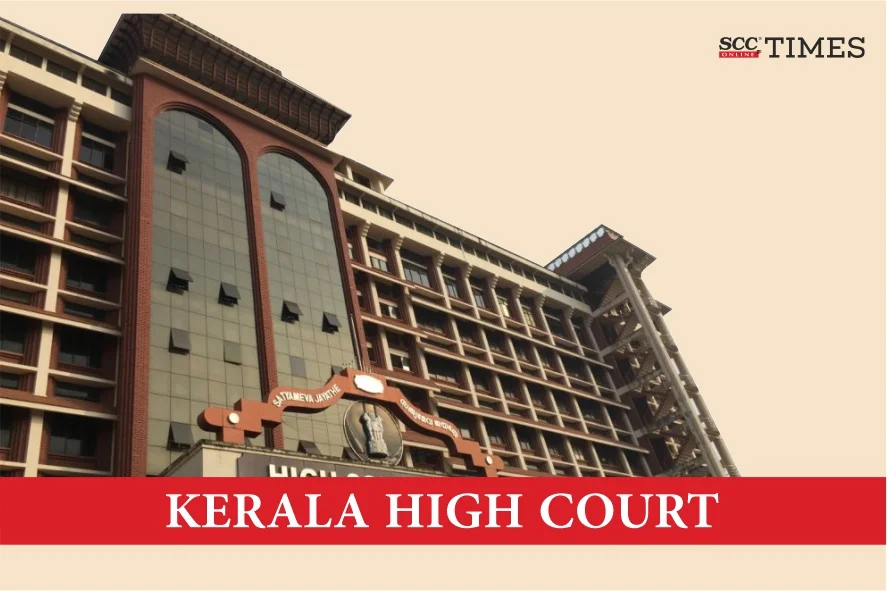Kerala High Court: In a writ petition filed by the co-opted members of the Bar Council of Kerala (‘BCK’) challenging the decision to exclude them from BCK meetings despite the Bar Council of India (‘BCI’) having extended the term of the XIIth BCK, C.S. Dias, J. said that the BCI, through its resolution, had extended the term of the XIIth BCK, thereby ensuring the petitioners’ inclusion as part of the Council. The Court further said that the Advocates Act and the Rules do not treat co-opted members as a separate or distinct class from elected members, and as such, the petitioners should not be differentiated from the elected members. Consequently, the Court ruled that the petitioners have the right to continue as members of the XIIth BCK until its dissolution.
Background
The petitioners, who are co-opted members of the BCK, challenged the exclusion of their participation in the XIIth BCK’s meetings despite the BCI extension of the term of the XIIth BCK. The petitioners were co-opted after vacancies arose due to the death and resignation of two members, with the ‘petitioner 1 joining on 20-3-2022 and the petitioner 2 on 20-8-2023. The XIIth BCK’s term expired on 6-11-2023, and after the election was delayed, the BCI extended the term by six months, followed by another 18-month extension. Despite this, the petitioners are being excluded from meetings, with the BCI allowing only elected members to continue their term under Rule 32 of the Bar Council of India Certificate and Place of Practice (Verification) Rules, 2015.
The petitioners argued that they could not be treated differently from elected members, as their co-option was a statutory procedure under the Advocates Act, 1961, and they were entitled to continue as members. They contended that the strength of the BCK was fixed at 25, and the filling of vacancies through co-option could not be disregarded. Additionally, the petitioners claimed that the proposed meeting for enrollment was illegal, as it lacked the required 10-day notice to all members, making the meeting invalid. Therefore, the petitioners sought a writ to enforce their right to continue as members of the BCK and to declare the meeting unlawful.
Analysis and Decision
The Court noted that the petitioners’ grievance is that they are being sidelined from the XIIth BCK in view of the resolution passed by the BCI.
The court noted that it is undisputed that the petitioners were duly elected and co-opted as members of the XIIth BCK in accordance with Rule 17 of Chapter IV of the Bar Council of Kerala Rules, 1979, following the death and resignation of two members.
The Court referred to the amended Rule 32 of the Bar Council of India Certificate and Place of Practice (Verification) Rules, 2015, and noted that the BCI has the power to extend the term of a State Bar Council up to 18 months to identify non-practising Advocates and verify their certificates to conduct the fresh election, dehors the timeframe stipulated under Section
Hence, the Court viewed that the XIIth BCK is in existence but is functioning through the three committees constituted under an order.
The Court noted that the request made by the BCK in the letter was specifically to extend the term of the XIIth BCK in accordance with the amended Rule 32 of the Bar Council of (Verification) Rules. In response, the BCI, through resolution, extended the term of the elected members of the BCK. However, the Court observed that despite the resolution referring to the “elected members,” the petitioners, who are co-opted members, were not invited to participate in the programs and functions of the XIIth BCK. This exclusion stemmed from the distinction made between elected and co-opted members, as the petitioners were co-opted and not directly elected members. Additionally, the Court referenced Section 3(2)(b) of the Advocates Act, which mandates that State Bar Councils with an electorate exceeding ten thousand members must consist of twenty-five elected members, in addition to the Advocate General of the State. This means the total strength of the BCK is 26 members, further clarifying the composition of the Council.
The Court noted that to maintain the statutory strength of the members, Rule 2(e) of the Bar Council of Kerala Rules, 1979, provides for filling any casual vacancy that may arise before the expiry of a member’s term. Rule 17 outlines the procedure for filling such vacancies. It was undisputed that the petitioners were elected by the members and co-opted to the XIIth Bar Council of Kerala (BCK) in accordance with the procedure prescribed under the Rules, ensuring the BCK functions with the required statutory strength.
Although the petitioners were co-opted at a later stage, the Court highlighted that the Bar Council of India (BCI), through resolution, extended the term of the XIIth BCK, thereby ensuring the petitioners’ inclusion as part of the BCK. The Court further held that the Act and the Rules do not treat co-opted members as a separate or distinct class, and as such, the petitioners should not be differentiated from the elected members. Consequently, the petitioners have the right to continue as members of the XIIth BCK until it is dissolved.
The Court declared that the term “elected members” in the resolution shall also include the petitioners. As a result, the petitioners were entitled to all the rights and privileges accorded to the elected members of the Bar Council of Kerala as outlined in the resolution.
The writ petition was allowed accordingly.
[Aisha P v. Bar Council of India, 2025 SCC OnLine Ker 2031, decided 02-04-2025]
Advocates who appeared in this case:
For Petitioners: Thomas Abraham, Merciamma Mathew, Aswin.P.John, R.Ananthapadmanaban, Paul Baby, Swathy A.P., Thara Elizabeth Thomas
For Respondent: M.U.Vijayalakshmi, K.Jaju Babu (Sr.), Rajit






